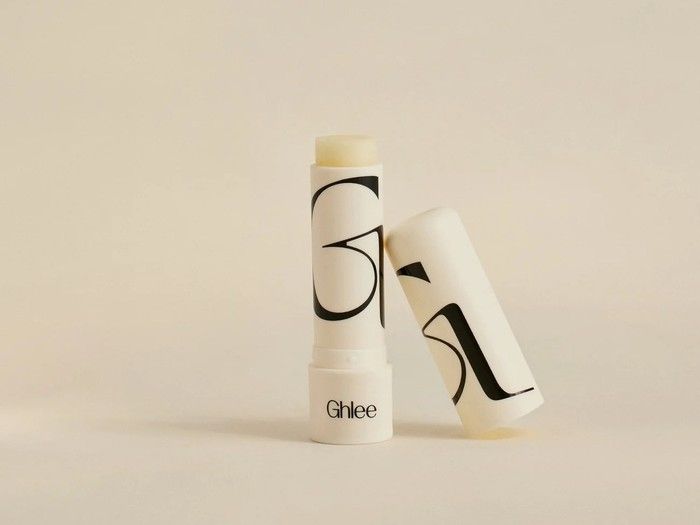Tech
Germany ditches centralized approach to app for COVID-19 contacts tracing – TechCrunch

Germany has U-turned on building a centralized COVID-19 contacts tracing app — and will instead adopt a decentralized architecture, Reuters reported Sunday, citing a joint statement by chancellery minister Helge Braun and health minister Jens Spahn.
In Europe in recent weeks, a battle has raged between different groups backing centralized vs decentralized infrastructure for apps being fast-tracked by governments which will use Bluetooth-based smartphone proximity as a proxy for infection risk — in the hopes of supporting the public health response to the coronavirus by automating some contacts tracing.
Centralized approaches that have been proposed in the region would see pseudonymized proximity data stored and processed on a server controlled by a national authority, such as a healthcare service. However concerns have been raised about allowing authorities to scoop up citizens’ social graph, with privacy experts warning of the risk of function creep and even state surveillance.
Decentralized contacts tracing infrastructure, by contrast, means ephemeral IDs are stored locally on device — and only uploaded with a user’s permission after a confirmed COVID-19 diagnosis. A relay server is used to broadcast infected IDs — enabling devices to locally compute if there’s a risk that requires notification. So social graph data is not centralized.
The change of tack by the German government marks a major blow to a homegrown standardization effort, called PEPP-PT, that had been aggressively backing centralization — while claiming to ‘preserve privacy’ on account of not tracking location data. It quickly scrambled to propose a centralized architecture for tracking coronavirus contacts, led by Germany’s Fraunhofer Institute, and claiming the German government as a major early backer, despite PEPP-PT later saying it would support decentralized protocols too.
As we reported earlier, the effort faced strident criticism from European privacy experts — including a group of academics developing a decentralized protocol called DP-3T — who argue p2p architecture is truly privacy preserving. Concerns were also raised about a lack of transparency around who is behind PEPP-PT and the protocols they claimed to support, with no code published for review.
The European Commission, meanwhile, has also recommended the use of decentralization technologies to help boost trust in such apps in order to encourage wider adoption.
EU parliamentarians have also warned regional governments against trying to centralize proximity data during the coronavirus crisis.
But it was Apple and Google jumping into the fray earlier this month by announcing joint support for decentralized contacts tracing that was the bigger blow — with no prospect of platform-level technical restrictions being lifted. iOS limits background access to Bluetooth for privacy and security reasons, so national apps that do not meet this decentralized standard won’t benefit from API support — and will likely be far less usable, draining battery and functioning only if actively running.
Nonetheless PEPP-PT told journalists just over a week ago that it was engaged in fruitful discussions with Apple and Google about making changes to their approach to accommodate centralized protocols.
Notably, the tech giants never confirmed that claim. They have only since doubled down on the principle of decentralization for the cross-platform API for public health apps — and system-wide contacts tracing which is due to launch next month.
At the time of writing PEPP-PT’s spokesman, Hans-Christian Boos, had not responded to a request for comment on the German government withdrawing support.
Boos previously claimed PEPP-PT had around 40 governments lining up to join the standard. However in recent days the momentum in Europe has been going in the other direction. A number of academic institutions that had initially backed PEPP-PT have also withdrawn support.
In a statement emailed to TechCrunch, the DP-3T project welcomed Germany’s U-turn. “DP-3T is very happy to see that Germany is adopting a decentralized approach to contact tracing and we look forward to its next steps implementing such a technique in a privacy preserving manner,” the group told us.
Berlin’s withdrawal leaves France and the UK the two main regional backers of centralized apps for coronavirus contacts tracing. And while the German U-turn is certainly a hammer blow for the centralized camp in Europe the French government appears solid in its support — at least for now.
France has been developing a centralized coronavirus contacts tracing protocol, called ROBERT, working with Germany’s Fraunhofer Institute and others.
In an opinion issued Sunday, France’s data protection watchdog, the CNIL, did not take active issue with centralizing pseudonymized proximity IDs — saying EU law does not in principle forbid such a system — although the watchdog emphasized the need to minimize the risk of individuals being re-identified.
It’s notable that France’s digital minister, Cédric O, has been applying high profile public pressure to Apple over Bluetooth restrictions — telling Bloomberg last week that Apple’s policy is a blocker to the virus tracker.
Yesterday O was also tweeting to defend the utility of the planned ‘Stop Covid’ app.
We reached out to France’s digital ministry for comment on Germany’s decision to switch to a decentralized approach but at the time of writing the department had not responded.
In a press release today the government highlights the CNIL view that its approach is compliant with data protection rules, and commits to publishing a data protection impact assessment ahead of launching the app.
If France presses ahead it’s not clear how the country will avoid its app being ignored or abandoned by smartphone users who find it irritating to use. (Although it’s worth noting that Google’s Android platform has a substantial marketshare in the market, with circa 80% vs 20% for iOS, per Kantar.)
A debate in the French parliament tomorrow is due to include discussion of contacts tracing apps.
We’ve also reached out to the UK’s NHSX — which has been developing a COVID-19 contacts tracing app for the UK market — and will update this report with any response.
In a blog post Friday the UK public healthcare unit’s digital transformation division said it’s “working with Apple and Google on their welcome support for tracing apps around the world”, a PR line that entirely sidesteps the controversy around centralized vs decentralized app infrastructures.
The UK has previously been reported to be planning to centralize proximity data — raising questions about the efficacy of its planned app too, given iOS restrictions on background access to Bluetooth.
“As part of our commitment to transparency, we will be publishing the key security and privacy designs alongside the source code so privacy experts can ‘look under the bonnet’ and help us ensure the security is absolutely world class,” the NHSX’s Matthew Gould and Dr Geraint Lewis added in the statement.
Tech
Meta Expands VR Operating System to Third-Party Hardware Makers – MacRumors


Facebook parent company Meta today announced the upcoming expansion of Meta Horizon OS, a virtual and augmented reality operating system that will be available to third-party hardware manufacturers that want to design their own headsets.
Right now, Meta sells the Quest line of headsets, but the company wants to provide the software for third-party VR and AR products in the future, much like Microsoft offers Windows for all manner of third-party PCs.
Meta Horizon OS is the mixed reality operating system that Meta created for its own Quest headsets, and it has support for eye, face, hand, and body tracking along with passthrough, spatial anchors, scene understanding, and other features. There is a “social layer” that will allow the identities, avatars, and friends of users to move between virtual spaces on different devices.
According to Meta, multiple companies are working on devices that will use Meta Horizon OS. ASUS ROG is developing a performance gaming headset and Lenovo is working on mixed reality devices for productivity, learning, and entertainment. Meta says that it is also creating a limited edition version of Meta Quest in partnership with Xbox.
With the expansion of Meta Horizon OS to third-party hardware manufacturers, Meta is making it easier for any developer to ship VR software on the platform by removing barriers between the Horizon Store and App Lab.
By creating an operating system that can be used by other hardware manufacturers, Meta is inserting itself into the growing AR/VR ecosystem and creating opportunities for it to outpace Apple in mixed reality development. Apple launched the Vision Pro headset earlier this year, but software is lacking given the high price and limited distribution of the device.
According to a report from earlier today, interest in the Vision Pro is already waning at Apple’s retail locations with fewer people requesting demos.
Tech
Brian's Randoms from Sea Otter 2024 – Pinkbike.com


There have been more launches in the past two weeks than any other two-week period I can remember since I started sweeping floors at Freedom Bike Shop back in 2001. Yes, that means I’m very old. It also means that after several years of delayed product releases, some brands have finally cleared out enough inventory to share what they’ve been working on.
The Pinkbike team came down to Sea Otter this year with mixed expectations, and there were definitely some weird vibes. Everyone is concerned for the remaining Kona employees, and more than one brand expressed that their plan is to #surviveto2025. But overall we loved catching up with everyone, the weather was great, and somehow there was even more gear to cover. The industry might be going through a tough time, but ultimately riding bikes is still ridiculously fun and bike tech is as interesting as ever.
And on that note, here are a few of the random things that caught my eye during the show.
OutsideBrendan works smarter not harder, and dog Bubbie(?) is awesome.
I mistakenly thought it was a garage project kind of thing, but it’s a real brand with a promo video and everything.
And with that, it’s time to face my expense report. Until next year, Sea Otter!
Tech
We tried these three beauty products this week. Here are our thoughts – Vancouver Sun


Reviews and recommendations are unbiased and products are independently selected. Postmedia may earn an affiliate commission from purchases made through links on this page.
Article content
Skin Caviar Eye Lift Serum
They say: A luxury serum that firms, smooths and lifts the eye area. The dual-chamber product features the Swiss skin-care brand’s Cellular Complex to ‘restore youthfulness to the eye contour,’ along with a blend of caviar components.
We say: Our tester applied one pump of this serum to the eye area daily. Gently dabbed onto skin, the serum gave an instant boost of hydration. The liquid-serum formula was lightweight and non-sticky, providing an easy base for any additional skin-care or makeup products. With use, our tester reported fine lines and firmness were noticeably improved.
Article content
$760 | Holt Renfrew, holtrenfrew.com
Marc Anthony
Strictly Curls Curl Envy Leave-In Conditioner
They say: A leave-in hair conditioner formulated for curly hair. Boasting strand-smoothing ingredients such as avocado oil, Vitamin E and shea butter, the spray can be used on course, fine, thick or thin curls to promote softness, fight frizz and lock in hydration.
We say: Our tester spritzed this conditioner on her ultra-curly, frizz prone coif. The spray format makes application easy and mess-free. Used both as a de-tangler on freshly washed hair and as a curl pick-me-up in between washes, she found it left curls looking formed, smooth and not stiff.
$12.97 | Mass retailers, walmart.ca


Ghlee
Lip Balm
They say: A nourishing lip balm that features antioxidant-rich ghee, along with mango seed butter and Vitamin E to hydrate lips. Available in Original, Rose, Chai, Mango-Papaya and Mint.
We say: This lip balm gives a dose of smoothing hydration with one swipe. Our tester loved the rose iteration, which boasted the scent of a fresh bloom. It’s the kind of balm you keep reaching for in your bag, she reports.
Share this article in your social network
-
Business13 hours ago
Honda to build electric vehicles and battery plant in Ontario, sources say – Global News
-



 Science14 hours ago
Science14 hours agoWill We Know if TRAPPIST-1e has Life? – Universe Today
-
Investment17 hours ago
Down 80%, Is Carnival Stock a Once-in-a-Generation Investment Opportunity?
-



 Health13 hours ago
Health13 hours agoSimcoe-Muskoka health unit urges residents to get immunized
-



 Health10 hours ago
Health10 hours agoSee how chicken farmers are trying to stop the spread of bird flu – Fox 46 Charlotte
-
News18 hours ago
Honda expected to announce multi-billion dollar deal to assemble EVs in Ontario
-
Art23 hours ago
‘Luminous’ truck strap artwork wins prestigious Biennale prize in first for New Zealand – The Guardian
-



 Sports23 hours ago
Sports23 hours agoJets score 7, hold off Avalanche in Game 1 of West 1st Round – NHL.com




